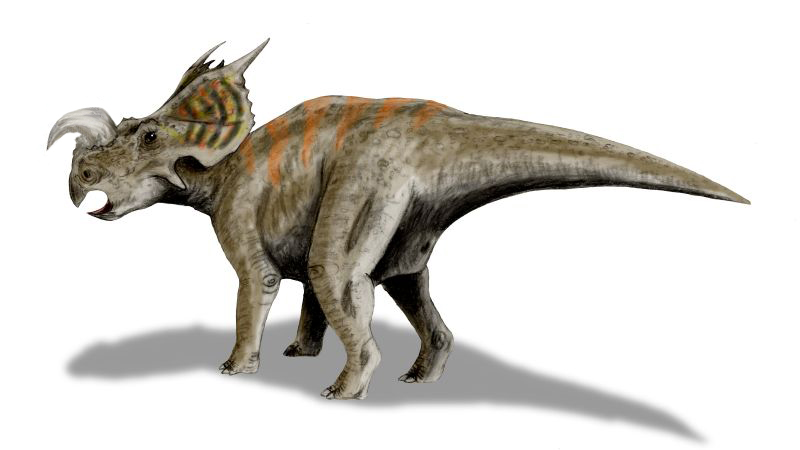
General
The Einiosaurus is one of the most unique ceratopsians ever discovered, even its namesake pointing to its defining feature: “with a forward-curving horn”. Found in a massive bone bed, we have discovered Einiosaurus of many ages and learned that its horn starts out as a stub and gradually grows up and out. The nature of its usage is still unknown, though. One thing to note about it is that it would be quite hard to use in self defense due to its angle.
Characteristics
Einiosaurus featured the average ceratopsian body; four legs, medium tail and large skull. The defining feature of the Einiosaurus is of course the defining feature of every ceratopsian, the skull and horn(s). In this case, the Einiosaurus features an interesting hook shaped horn that curved forward sharply as well as ornate head spikes like the Styracosaurus. It also had a narrow snout and sharp beak for eating.
| Genus: | Einiosaurus |
| Meaning: | “with a forward-curving horn” |
| Discovered: | Montana |
| Class: | Ceratopsian |
| Size: | 4.5 Meters long, 1.8 Meters tall. |
| Paleo Rating: | 34/42 |
| References: | Info taken from: Einiosaurus – Wikipedia Image from: Einiosaurus – Wikipedia – By N. Tumura |
Did you know?
The Einiosaurus was closely related to other famous single horned ceratopsians like Pachyrhinosaurus and Styracosaurus.
Interesting Facts
- The Einiosaurus has had a small identity crises and has been called a Styracosaurus and Centrosaurus in the past despite its very unique horn.
- The massive formation of bones found together points to a very social lifestyle with large herds of them moving around as a group. This would have been a protection against predators and would have helped them find mates and raise young ones.
